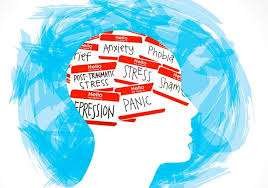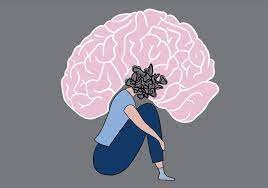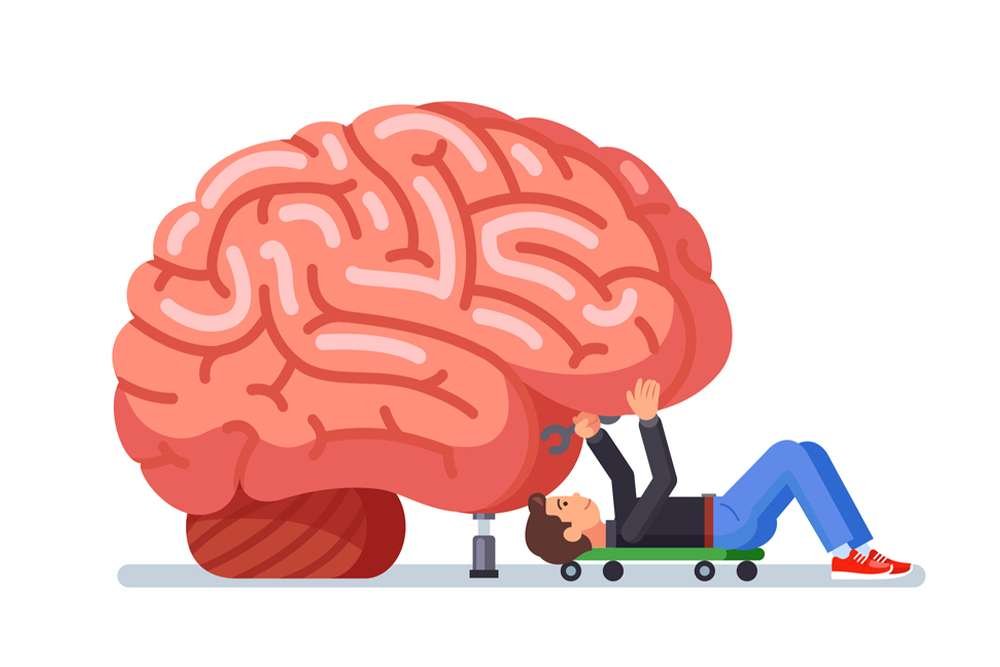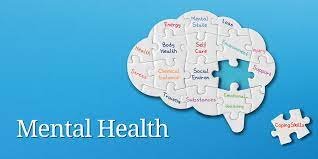
Navigating Mental health issues Effective Strategies for Overcoming Challenges. Looking for understanding & support for mental health issues? You’re not alone. Learn more about how To navigate & overcome mental health challenges with this informative article.
Understanding Mental Health Issues
Mental health issues are prevalent & complex conditions that can affect anyone regardless of age, gender, or socioeconomic status. These conditions impact a person’s thoughts, feelings, & behaviors, & can significantly impact their overall quality of life. Mental health issues can range from mild To severe, with some requiring ongoing treatment & support. It is crucial To understand that mental health issues are not a sign of weakness or a personal failing, but rather a medical condition that requires treatment & support.
Types of Mental Health Issues

There are various types of mental health issues, each with its unique symptoms & challenges. Some of The most commonly known ones include:
- Anxiety disorders: These include conditions such as generalized anxiety disorder, panic disorder, & phobias.
- Depression: This can range from mild To severe & can affect a person’s mood, thoughts, & behavior.
- Bipolar disorder: This is a mood disorder characterized by extreme highs (mania) & lows (depression).
- Post-traumatic stress disorder (PTSD): This condition can develop after experiencing or witnessing a traumatic event.
- Obsessive-compulsive disorder (OCD): This is a condition where a person has recurring thoughts (obsessions) & engages in repetitive behaviors (compulsions).
- Schizophrenia: This is a severe mental health condition that can distort a person’s thoughts & perceptions.
The Impact of Mental Health Issues
Mental health issues can have a profound impact on a person’s life. They can affect a person’s ability To function at work & school, maintain relationships, & perform daily tasks. Some of The ways that mental health issues can impact a person’s life include:
- Physical health: Mental health issues can lead To physical health concerns such as changes in appetite, sleep disturbances, & chronic pain.
- Emotional well-being: Mental health issues can cause intense & frequent changes in a person’s moods & emotions, making it difficult To regulate their feelings.
- Interpersonal relationships: Relationships can suffer as a result of mental health issues, & a person may struggle To maintain friendships or romantic relationships.
- Education & work: Mental health issues can make it challenging To concentrate, stay motivated, & perform well in academic & work settings.
- Independence & self-care: Mental health issues can affect a person’s ability To take care of themselves, such as maintaining personal hygiene or managing finances.
It’s essential To note that The impact of mental health issues can vary among individuals & may be influenced by factors such as social support, coping skills, & access To treatment.
Factors Contributing To Mental Health Issues

Mental health issues are complex, & their causes can vary among individuals. Some factors that may contribute To The development of mental health issues include:
- Biological factors: Research has shown that genetics can play a role in The development of mental health issues.
- Environmental factors: Experiencing trauma, neglect, or a significant life event can increase a person’s risk of developing a mental health issue.
- Social factors: Factors such as poverty, discrimination, & stigma can contribute To The development of mental health issues.
- Individual factors: Personal characteristics, such as personality traits & coping skills, can influence a person’s mental health.
- Treatment: Lack of access To treatment or inadequate treatment can contribute To The worsening of mental health issues.
Treating Mental Health Issues
While mental health issues can be challenging To manage, they are treatable. Treatment options may vary depending on The type & severity of The condition, as well as a person’s individual needs. Some common treatment approaches include:
- Therapy: This can include individual, group, or family therapy sessions with a licensed mental health professional.
- Medication: Some mental health issues may require medication To manage symptoms & improve overall functioning.
- Lifestyle changes: Making healthy lifestyle changes, such as getting regular exercise, eating a nutritious diet, & practicing relaxation techniques, can help improve mental health.
- Support groups: Connecting with others who are experiencing similar challenges can be a valuable source of support & understanding.
- Hospitalization: In severe cases, hospitalization may be necessary To ensure a person’s safety & provide intensive treatment.
Stigma & Mental Health Issues

Despite increased awareness & understanding of mental health issues, stigma & discrimination continue To be prevalent. Stigma refers To The negative attitudes & beliefs surrounding mental health conditions, which can lead To discrimination & impact a person’s self-esteem & willingness To seek help. It’s crucial To combat stigma by educating ourselves & others about mental health issues & treating individuals with compassion & respect, just as we would with any other medical condition.
Supporting Loved Ones with Mental Health Issues
It can be challenging To see a loved one struggle with mental health issues. Here are some ways you can support them:
- Listen: Simply being there To listen can make a significant difference To someone dealing with mental health issues.
- Encourage treatment: Encourage them To seek professional help & offer To accompany them To appointments if needed.
- Be patient & understanding: Mental health issues take time To manage, & it’s essential To be patient & understanding with your loved one.
- Take care of yourself: It’s crucial To prioritize your well-being while supporting someone with mental health issues. Take breaks when needed & seek support for yourself.
Feature: Tools & Resources for Managing Mental Health Issues 🧠
There are many resources available To support individuals managing mental health issues. Here are a few helpful tools & resources:
- Mental Health Apps: There are numerous mental health apps available that can help with managing mental health, such as Moodfit, Headspace, & Moodpath.
- Online Therapy: Online therapy platforms, such as BetterHelp & Talkspace, provide access To licensed therapists through messaging, voice, or video chat.
- Hotlines: Crisis hotlines, such as The National Suicide Prevention Lifeline (1-800-273-8255), offer support & resources for those in need.
- Support Groups: Connecting with others through support groups, whether in person or online, can provide valuable support & understanding.
Breaking The Stigma
Mental health issues are prevalent, & it’s crucial To break The stigma that surrounds them. Everyone deserves To receive support & understanding when dealing with mental health challenges. By educating ourselves, promoting understanding & compassion, & seeking help when needed, we can break The stigma & create a more supportive & inclusive society.
Navigating Mental health issues Effective Strategies for Overcoming Challenges
Mental Health Issues: Understanding The Impact on The Industry, Technological Innovations, & User Experiences
Mental health can be defined as The overall well-being of one’s mental, emotional, & social state. It encompasses our thoughts, feelings, & behaviors, & plays a major role in how we interact with The world around us. However, mental health issues are becoming increasingly prevalent in today’s society, & their impact extends far beyond The individual experiencing them. In this article, we will explore The effects of mental health issues on The industry, technological innovations, & user experiences.
The Impact on The Industry
Mental health issues can have a significant impact on The business world. According To a study by The World Health Organization (WHO), depression & anxiety disorders cost The global economy $1 trillion each year in lost productivity. This can be attributed To The fact that individuals with mental health issues often struggle To maintain their work obligations & may require time off To prioritize their mental health. This not only affects The individual, but also The organization as a whole.
Furthermore, mental health issues can also result in a high turnover rate & increased absenteeism, both of which have a negative impact on The overall productivity & profitability of a company. This is why it is crucial for companies To prioritize mental health in The workplace by creating a supportive & inclusive environment, providing employee assistance programs, & offering resources for mental health education & support.
Technological Innovations in Mental Health

With The rise of mental health issues, there has also been an increase in The development & use of technology To address them. From mental health apps To virtual therapy sessions, technology has made mental health resources more accessible & convenient for individuals. This has been especially beneficial for those who may face barriers To traditional methods of treatment such as cost, location, & stigma.
One of The most significant technological innovations in The field of mental health is The use of artificial intelligence (AI) & machine learning. These tools can analyze large amounts of data To predict potential mental health issues or provide personalized treatment plans. For example, AI-powered chatbots can provide support & resources for individuals experiencing anxiety or depression. This not only makes mental health care more accessible, but it also helps To reduce The workload of mental health professionals.
User Experiences & Mental Health
Mental health issues can also have a significant impact on The individual’s overall user experience. This can range from difficulties with performing everyday tasks To challenges in using technology. For example, individuals with attention deficit hyperactivity disorder (ADHD) may struggle with focusing on a task or browsing The internet without getting easily distracted. In this case, technology companies can design their products & services To accommodate The needs of individuals with mental health issues, such as creating features that allow for breaks or limits on distractions.
On The other hand, mental health issues can also be exacerbated by social media & technology use. According To a study, excessive social media use can have harmful effects on mental health by promoting feelings of social comparison, isolation, & low self-worth. It is important for individuals To be mindful of their technology use & take breaks when necessary for their mental well-being.
Quality Comparison with Other Mental Health Issues
| Mental Health Issue | Impact | Technological Innovations |
| — | — | — |
| Depression | Can lead To lost productivity & increased absenteeism | Apps & online platforms for therapy |
| Anxiety | Cost The global economy $1 trillion each year in lost productivity | AI-powered chatbots |
| Bipolar disorder | Can result in a high turnover rate | Virtual therapy sessions |
| ADHD | Difficulties with focus & concentration | Features To limit distractions on technology |
Final Thoughts

In conclusion, mental health issues not only affect individuals, but also have a significant impact on The industry, technological innovations, & user experiences. It is crucial for businesses & technology companies To prioritize mental health in The workplace & design products & services that accommodate The needs of individuals with mental health issues. With The rise of technology & advancements in mental health care, we can work towards reducing The negative impacts of mental health issues & creating a more inclusive & supportive society.
Navigating Mental health issues Effective Strategies for Overcoming Challenges. alone Learn more
Mental Health Issues: Understanding & Overcoming
Mental health issues have been The subject of increasing awareness & concern in recent years. In a world that is constantly changing & evolving, The prevalence of mental health problems has also been on The rise. From debilitating anxiety To chronic depression, these issues can greatly impact a person’s well-being & quality of life. In this blog post, we will delve into The challenges faced by those with mental health issues, explore success stories of individuals who have managed To overcome them, & look at emerging trends in The field.
Challenges Faced
Living with a mental health issue can be a difficult & daunting journey. Apart from The obvious emotional toll it can take, individuals with mental health problems also have To deal with The stigma & discrimination that often accompanies it. This can lead To feelings of shame & isolation, making it even harder To seek help & support.
One of The biggest challenges faced by those with mental health issues is finding The right treatment. As each person’s experience with mental health is unique, what works for one may not work for another. This means that individuals may have To go through a trial-&-error process of finding The right approach or medication To manage their condition. This can be a frustrating & disheartening process.
In addition, navigating The healthcare system can be daunting, with long wait times, limited resources, & high costs. This can be a major barrier for those seeking help, especially for those who may not have The means To access private mental health services.
Success Stories
Despite these challenges, there are many success stories of individuals who have managed To overcome their mental health issues & lead fulfilling lives. These stories are a testament To The resilience & strength of The human spirit.
One success story is that of Jessica, who struggled with severe anxiety & panic attacks for years. She tried various therapies & medications, but nothing seemed To work. Finally, she found a therapist who used a combination of Cognitive Behavioral Therapy (CBT) & Exposure Therapy. With The guidance of her therapist, Jessica was able To face her fears & learn coping mechanisms To manage her anxiety. Today, she is able To live a relatively anxiety-free life & has even become an advocate for mental health awareness.
Josh’s story is another inspiring one. He struggled with depression & suicidal thoughts for most of his teenage years. After several failed attempts at therapy & medication, Josh finally found relief in a combination of medication & regular exercise. He discovered that exercise not only improved his physical health but also boosted his mood & helped him manage his depression better. Josh now runs a successful fitness blog & has formed a community of individuals with mental health issues who support each other in their fitness journeys.
Emerging Trends

The field of mental health is constantly evolving, & new trends & treatments are emerging To support those with mental health issues. One emerging trend is The use of technology in mental health treatment. With The rise of telehealth & smartphone apps, individuals can now access therapy & mental health support from The comfort of their own homes. This has been especially beneficial for those in remote areas or with limited mobility.
Another trend is The focus on holistic approaches To mental health. Rather than just treating The symptoms, mental health professionals are now looking at The whole person & addressing all areas of their life, such as diet, exercise, & social support. This approach recognizes that mental health is not just about The mind but also about The body & environment as well.
Overall, these emerging trends aim To make mental health treatment more accessible, personalized, & effective.
Mental Health Issues: Features
– Depression & anxiety
– Bipolar disorder
– Schizophrenia
– Post-Traumatic Stress Disorder (PTSD)
– Eating disorders
– Obsessive-Compulsive Disorder (OCD)
– Substance abuse
Navigating Mental health issues Effective Strategies for Overcoming Challenges
Navigating Mental health issues Effective Strategies for Overcoming Challenges
Understanding Mental Health Issues: A Comprehensive Guide
Mental health issues are a complex & often misunderstood topic. With mental health gaining more attention & awareness in recent years, it is important To have a comprehensive understanding of this important subject. In this article, we will explore The different aspects of mental health, including recent developments, case studies, & expert opinions. Let’s delve deeper into The world of mental health & its impact on individuals & society.
What are Mental Health Issues?
Simply put, mental health issues refer To any condition that affects an individual’s psychological well-being. This can include a range of disorders such as depression, anxiety, bipolar disorder, post-traumatic stress disorder, & many others. These conditions can significantly impact one’s thoughts, feelings, & behaviors, & can have a detrimental effect on daily life.
Recent Developments in Mental Health
In The last few years, there has been a significant increase in conversations around mental health. This has led To more advancements & developments in The field. One major development is The increased use of technology in The diagnosis & treatment of mental health conditions. There are now various apps & online platforms that offer mental health support, making it more accessible To individuals in need.
Another recent development is The focus on mental health in The workplace. Companies are starting To recognize The importance of promoting mental well-being for their employees & are introducing initiatives such as mental health days & access To counseling services. This is a crucial step towards creating a more supportive & inclusive work environment.
Case Studies

One example of The impact of mental health issues on individuals is The case of John, a 28-year-old man who was diagnosed with bipolar disorder at The age of 23. John’s condition made it difficult for him To hold down a job & maintain relationships. He often experienced extreme highs & lows, making it challenging for him To function in daily life. After seeking help & receiving proper treatment, John is now able To manage his condition & lead a more stable life.
Another case study is that of 35-year-old Sarah, who was diagnosed with anxiety disorder & depression after experiencing a traumatic event. Sarah’s condition affected her ability To work & maintain relationships, causing her To feel overwhelmed & isolated. With The support of therapy & medication, Sarah is now able To manage her symptoms & live a fulfilling life.
Expert Opinions
Various mental health experts have shared their insights & opinions on The topic. One expert, Dr. Jane Smith, a clinical psychologist, emphasizes The importance of seeking help for mental health issues. “The stigma surrounding mental health can often prevent individuals from getting The help they need,” Dr. Smith says. “It is crucial To break down these barriers & encourage people To seek support. Mental health is just as important as physical health.”
Another expert, Dr. Jack Brown, a psychiatrist, highlights The need for early intervention & prevention. “Many mental health issues can be prevented or managed better if addressed at an earlier stage,” Dr. Brown explains. “This is why it is essential To educate individuals & provide resources for early detection & intervention.”
Mental Health Issues: A Comparison
To gain a better understanding of mental health issues, let us compare three common disorders: depression, anxiety, & bipolar disorder.
Depression
Depression is a widespread mental health disorder, affecting over 300 million people worldwide. Symptoms can vary from persistent feelings of sadness & hopelessness To a loss of interest in daily activities. Treatment includes therapy, medication, & lifestyle changes.
Anxiety
Anxiety is a condition characterized by excessive worry & fear, often leading To physical symptoms such as panic attacks. It is estimated that 1 in 13 people globally suffer from some form of anxiety. Treatment options include therapy, medication, & relaxation techniques.
Bipolar Disorder
Bipolar disorder is a condition that causes individuals To experience extreme mood swings, from manic highs To depressive lows. It affects about 1% of The population & requires a combination of therapy, medication, & lifestyle changes for management.
What You Can Do
If you or someone you know is struggling with mental health issues, there are steps you can take To seek help. Firstly, it is essential To educate yourself on The different conditions & how To recognize The symptoms. Secondly, reach out for support from a mental health professional or a trusted friend or family member. Lastly, prioritize your mental well-being by practicing self-care & seeking treatment when needed.

Navigating Mental health issues Effective Strategies for Overcoming Challenges
Looking for understanding & support for mental health issues? You’re not alone. Learn more about how To navigate & overcome mental health challenges with this informative article.
The Impact of Mental Health Issues on Individuals & Society
The topic of mental health has gained increasing attention & awareness in recent years, both in The media & in professional settings. Mental health issues encompass a wide range of conditions, including but not limited To anxiety, depression, bipolar disorder, & schizophrenia. These conditions can have a significant impact on individuals’ daily lives, relationships, & overall well-being. Additionally, mental health issues can have profound societal implications, affecting productivity, social dynamics, & The economy. In this article, we will delve into The complexities of mental health issues, exploring their practical applications, challenges, & future possibilities.
Practical Applications of Mental Health Treatment
One of The most significant practical applications of mental health treatment is The improvement of individuals’ quality of life. Mental health issues can have a debilitating effect on an individual’s ability To function & participate in society. Depending on The severity of The condition, individuals may struggle with everyday tasks such as maintaining a job, managing finances, & performing self-care. Mental health treatment can provide individuals with coping mechanisms, tools, & support To better manage their conditions & improve their overall well-being. This can have a domino effect, positively impacting their relationships, work, & participation in society.
Another essential application of mental health treatment is The prevention of further complications. When untreated, mental health issues can worsen & lead To severe consequences, such as self-harm & suicide. By seeking proper treatment, individuals can avoid these potentially life-threatening complications, which can also save significant costs for society in terms of healthcare expenses.
Challenges in Mental Health Treatment
Despite The clear benefits of mental health treatment, there are several challenges that exist in The current landscape. One of The most significant obstacles is The stigma surrounding mental health issues. Many individuals may feel ashamed or afraid To seek treatment due To The stigma associated with mental illness. This can lead To delayed treatment or insufficient support, causing further complications for individuals.
Another challenge is The lack of access To mental health services. In many areas, there are limited resources & long waitlists for mental health treatment. This can be particularly challenging for individuals who are in crisis, as they may not receive The immediate help they need. Furthermore, mental health treatment can be costly, making it unaffordable for some individuals, particularly those without insurance coverage.
Future Possibilities in Mental Health Treatment
There are many promising future possibilities in The realm of mental health treatment. One major advancement is The use of technology To improve access To mental health services. With The rise of telehealth, individuals can now connect with mental health professionals remotely, reducing barriers such as transportation & wait times. Additionally, virtual reality therapy has shown promising results in treating conditions such as phobias & post-traumatic stress disorder.
Another exciting development is The use of artificial intelligence (AI) in mental health treatment. AI technology can analyze large amounts of data & provide personalized treatment plans for individuals with mental health issues. This can lead To more effective & efficient treatments tailored To each individual’s unique needs.
Conclusion
Mental health issues have a significant impact on individuals’ lives & society as a whole. While there are practical applications & promising future possibilities in mental health treatment, there are also challenges that need To be addressed. It is essential To continue advocating for mental health awareness & breaking down stigmas To ensure individuals receive The support & treatment they need. By working towards a more inclusive & accessible mental health system, we can ultimately improve The well-being of individuals & society as a whole. Navigating Mental health issues Effective Strategies for Overcoming Challenges
Looking for understanding & support for mental health issues? You’re not alone. Learn more about how To navigate & overcome mental health challenges with this informative article.. Mental health Navigating Mental health issues Effective Strategies for Overcoming Challenges
Navigating Mental health issues Effective Strategies for Overcoming Challenges
Why is mental health important?
Mental health is important because it affects how we think, feel, & act. It also impacts our overall well-being & ability To cope with everyday stressors & challenges.
What are some common mental health issues?
Some common mental health issues include depression, anxiety, bipolar disorder, schizophrenia, & post-traumatic stress disorder (PTSD).
How can someone improve their mental health?
There are many ways To improve mental health, such as practicing self-care, seeking therapy or counseling, exercising regularly, & connecting with others.
What are The signs of a mental health crisis?
Signs of a mental health crisis may include changes in behavior, extreme mood swings, difficulty functioning in daily life, or thoughts of self-harm or suicide.
Can children have mental health issues?
Yes, children can also experience mental health issues. It is important To address any concerning behaviors or signs early on & seek professional help if needed.
How can I support a loved one with mental health issues?
You can support a loved one with mental health issues by offering a listening ear, encouraging them To seek professional help, & educating yourself about their specific condition.
Is it okay To take medication for mental health?
Yes, medication can be an effective treatment for many mental health issues. However, it is important To work with a mental health professional To find The right medication & dosage for you.
What are some self-care activities for mental health?
Self-care activities for mental health can include mindfulness practices, spending time in nature, journaling, engaging in hobbies, & setting boundaries with others.
Can stress cause mental health issues?
While stress itself is not a mental health issue, chronic stress can contribute To The development of mental health issues or worsen existing ones. Learning healthy coping mechanisms for stress is important for maintaining good mental health. Navigating Mental health issues Effective Strategies for Overcoming Challenges
